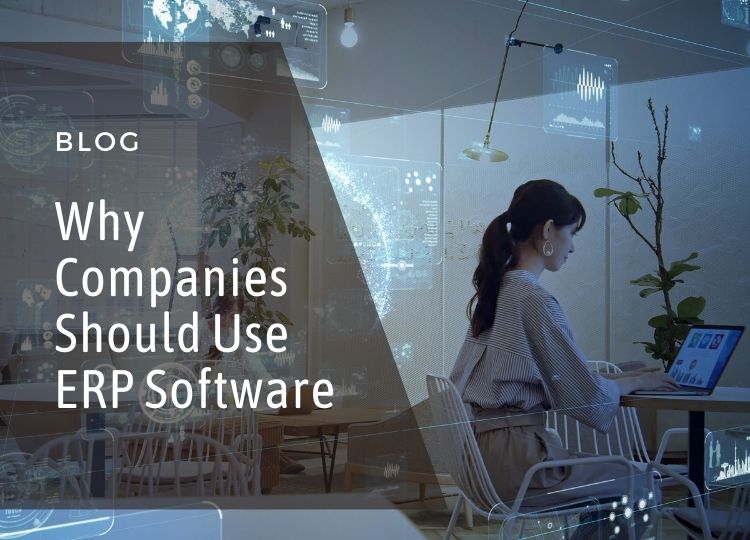Why Companies Should Use ERP Software
In today’s competitive business environment, staying ahead and ensuring sustainable growth requires efficient and effective business processes. This is where ERP (Enterprise Resource Planning) software comes into play. ERP integrates various business processes into a single centralized system, offering ease of management. Here are the primary reasons why ERP software is essential for companies:
1. Efficiency and Operational Productivity
ERP software unifies different departments of a company into a single integrated system. This speeds up data flow and enhances communication between departments. For example, a manufacturing company can use ERP software to integrate inventory management, production planning, and sales processes, thus increasing operational efficiency and saving time and costs.
2. Real-Time Data and Information Management
ERP systems provide real-time data, enabling businesses to access accurate and timely information. This accelerates strategic decision-making processes and helps companies make quicker and more accurate decisions. For instance, a manager who can see sales data in real time can promptly update marketing strategies.
3. Financial Management and Reporting
ERP software allows the automation and easy management of financial processes. Integrating accounting operations, financial reporting, and budgeting into a single system reduces errors and enhances the accuracy of financial data. For example, companies can generate financial reports with a single click and support these reports with detailed analyses.
4. Inventory and Supply Chain Management
ERP software optimizes inventory management and supply chain processes. Monitoring inventory levels in real-time, managing suppliers, and controlling inventory can be done more efficiently with ERP systems. This allows quick responses to customer demands and reduces inventory costs. For example, a retail company can monitor the stock levels of best-selling products in real-time and optimize the supply process.
5. Customer Relationship Management (CRM) Integration
ERP software works integrated with CRM modules, enabling better management of customer relationships. Information such as customer data, sales history, and demands are gathered in a single system, helping develop strategies to increase customer satisfaction. For example, a service company can track past service requests and feedback from customers through the ERP system and continuously improve service quality.
6. Automation of Business Processes
ERP software accelerates business processes and reduces error rates by automating manual tasks. For example, routine tasks like invoicing, order processing, and payroll calculation become automatic with ERP systems. This allows employees to focus on more strategic tasks.
7. Compliance and Risk Management
ERP systems simplify compliance and risk management. Especially in areas like financial reporting and tax declarations, ERP software automates compliance processes and simplifies audit processes. For instance, a company using an ERP system can ensure full compliance with tax regulations, minimizing legal risks.
Examples and Solutions
Example 1: Manufacturing Company
A manufacturing company integrated production planning, inventory management, and sales processes using Microsoft Dynamics 365 Business Central. This increased efficiency on production lines and reduced inventory costs by 15%. Additionally, supply chain processes were optimized with real-time data, allowing quicker responses to customer demands.
Example 2: Retail Company
A retail chain optimized its inventory management and customer relationships using ERP software. By monitoring inventory levels in real-time, the company timely replenished the stock of best-selling products, enhancing customer satisfaction. Additionally, CRM integration allowed for quicker responses to customer demands, increasing sales by 20%.
Example 3: Finance and Accounting Firm
An accounting firm automated all its accounting operations using ERP software. Processes such as invoicing, payroll calculation, and financial reporting became faster and error-free with the ERP system. This reduced operational costs by 10% and significantly increased customer satisfaction.
Things to Consider When Choosing ERP Software:
- Company size and industry
- Company’s specific needs and requirements
- Budget of ERP software
- Features of ERP software
- Supplier of ERP software
Conclusion
ERP software helps businesses increase their efficiency, reduce costs, and gain a competitive advantage. By automating business processes, managing real-time data, and offering integrated solutions, companies can make strategic decisions and ensure sustainable growth. Therefore, it is clear that ERP software is an indispensable tool for businesses.

